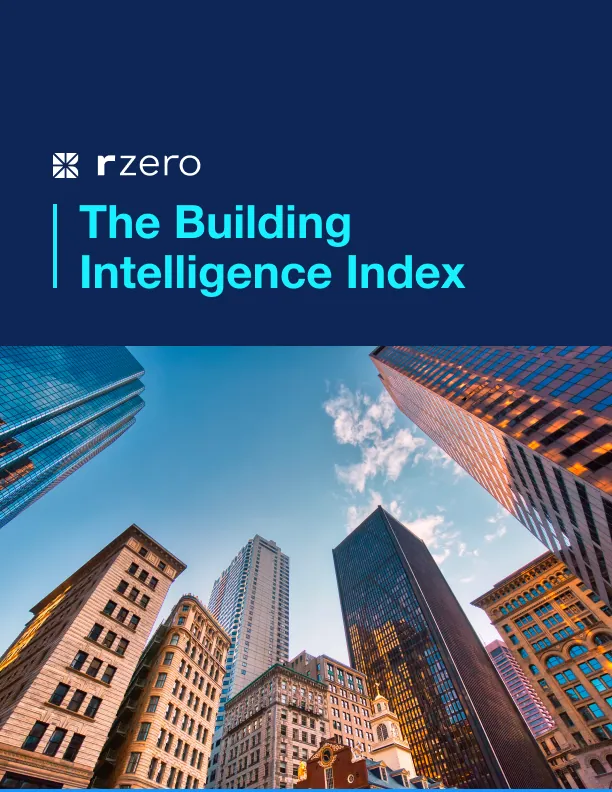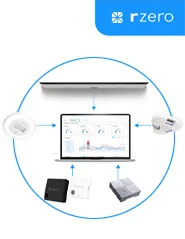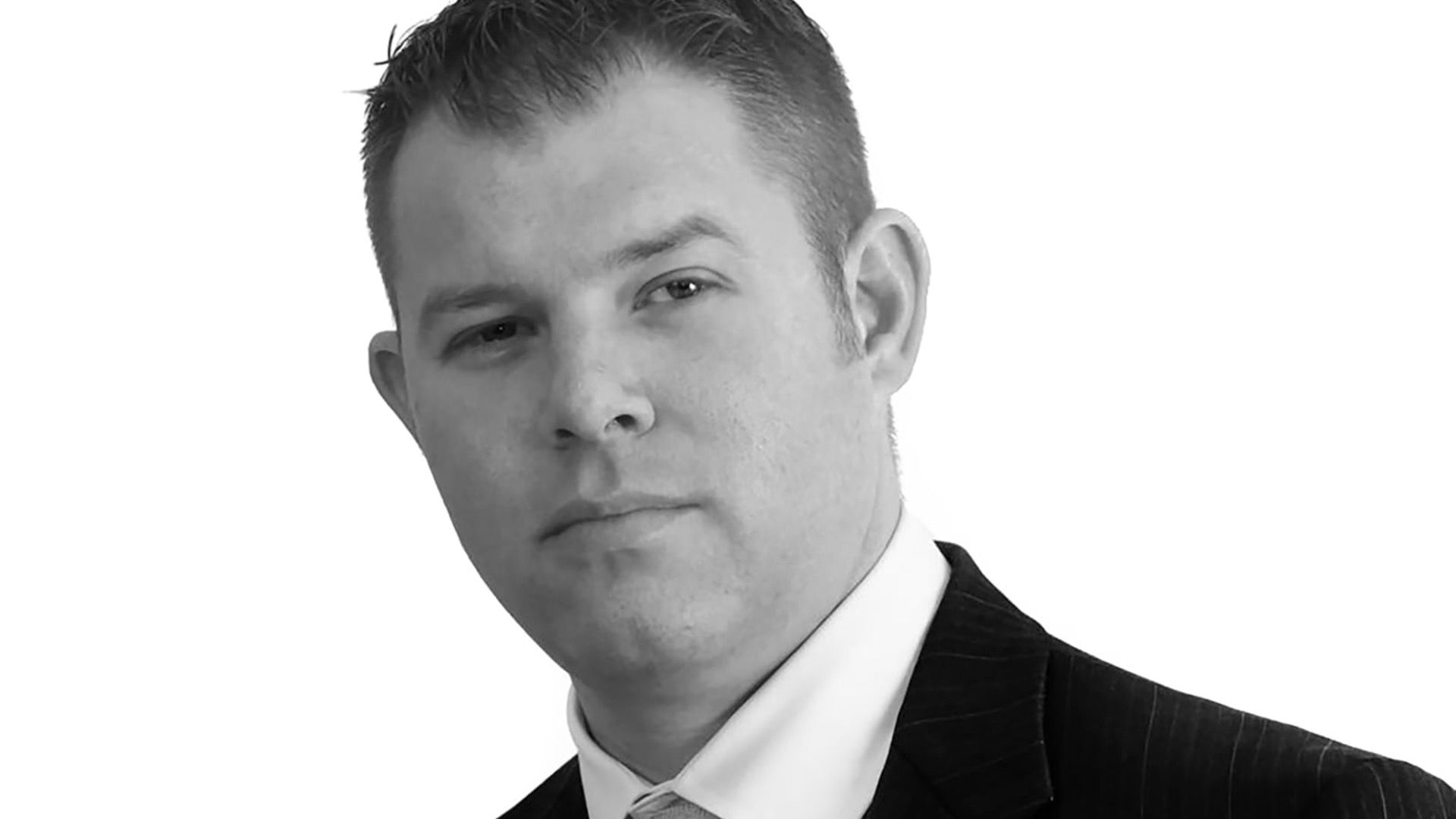
R-Zero’s Jeff Wagner on the Built Environment & People
R-Zero is proud to announce that built environment expert Jeff Wagner, former Chief of Facilities for Clark County School District in Nevada, has joined the team as General Manager of Education.
As a trained architect and former college professor, Jeff brings a wealth of experience regarding the impact of the built environment on people-performance. Before joining R-Zero, Jeff served as Chief of Facilities for Clark County School District (CCSD) in Nevada – the fifth largest school district in the U.S. In his new role, Jeff will serve as an advisor to R-Zero’s customers and partners in the education sector and other industries to help them identify how R-Zero solutions can meet their needs for enabling UV-C disinfection in their built environments. The following interview goes deeper into Jeff’s background, his passion for Healthy Buildings principles, and his goals as R-Zero’s new General Manager of Education.
R-Zero: Jeff, we’re so excited to have you joining the R-Zero team! Where has your career taken you prior to this new role with R-Zero?
Jeff Wagner: Really, my career has focused around architecture – I’m a trained architect. Before I joined Clark County School District (CCSD), I had my own private practice, and I was a tenured college professor. I’m very passionate about the built environment and specifically passionate about how the built environment intersects with education. About 6 years ago, I had the opportunity to join CCSD. At first, I was hesitant: I didn’t think I wanted to be a public employee. But my wife, who is smarter than I am, advised me that the opportunity combined the two things I cared about the most – education and architecture. So that’s how I ended up at CCSD.
My first four years at CCSD, I was the Director of Construction Management and was responsible for all the design and construction activities in the district, including one of the largest capital programs in the country for K12. I never intended to be the Chief of Facilities. However, just before the beginning of the pandemic, my immediate boss left the district, and I took on the role of Interim Chief of Facilities in February 2020. Obviously, the pandemic hit in March of 2020 and changed that role (and everyone’s world) significantly. It was both challenging and rewarding to help navigate the fifth largest school district in the country through that process. In that role, I was not only responsible for all of the construction work I had been responsible for before but also responsible for the maintenance and custodial work for the district. My responsibilities and number of employees expanded significantly. There was no playbook for the pandemic – we were all figuring it out. Facilities played a large role in not only shutting down and maintaining facilities when nobody was in the buildings but also figuring out how to bring people back into the buildings. I’ve spent the last two years navigating and building a team around bringing people back to CCSD’s facilities while also trying to set the team up for long-term success.
I met Eli [R-Zero Cofounder and President] in May of 2021 and immediately formed a friendship with him. He was adamant that I needed to join the company, and I was adamant that it was outside of my expertise. However, when we started to talk deeply about product roadmaps and R-Zero’s overarching goals, I realized that those goals align with my personal and professional goals. Essentially, I want to make buildings better for people at a very fundamental level. That desire was a reason why I became an architect: I wanted to make the world a better place! And this new role at R-Zero allows me to have a broader influence not just over a singular building or program but on an exponentially larger group of people.
“During my tenure with CCSD, I really tried to promote having a proactively positive impact, whether that be through air quality or a Healthy Buildings initiative. I think that’s part of why R-Zero and I align so well. R-Zero has always been about people first and how we can have that positive impact.”
R-ZERO: Can you tell me more about your interest in the intersection of the built environment and education. How did those two spaces become so intriguing to you?
Jeff Wagner: From a young age, I was involved in the built environment: my parents bought and renovated homes and did all the work, so I worked with my hands at a very young age. That experience prompted an interest in construction. Because my parents were adamant that I go to college, I decided to pursue architecture. My success in life has really been a result of education. Early on, maybe my second year of architecture school, I figured out that by sharing my knowledge and encouraging other people, I gained a great deal. That realization led to what has been a lifelong passion for sharing what I’m passionate about. I started to volunteer and help out teachers as a teaching assistant during my grad school years. After grad school, I was working as an architect during the day and teaching full-time in the evening as a tenured professor in the Architecture department at the College of Southern Nevada for nearly 10 years.
I have a deep passion for sharing my knowledge as well as engaging people and empowering them to meet their own goals. It’s taught me that education and knowledge really are power. All the things I’ve been able to accomplish in my life are a direct result of the fact that education was valued in my household. As far as my passion for the built environment, there’s nothing more rewarding for me than being able to create spaces where people get to pursue their dreams. When I was approached about becoming the director of construction for the district (at CCSD), it seemed like a natural fit. It was something that I could be involved in everyday. There’s nothing more rewarding or terrifying than the first day of school for K-12 school kids. It’s incredibly rewarding to see them come into a new school. During my tenure with CCSD, I really tried to promote having a proactively positive impact, whether that be through air quality or a Healthy Buildings initiative. I think that’s part of why R-Zero and I align so well. R-Zero has always been about people first and how we can have that positive impact.
“Without people, there are no buildings. Buildings really are just the medium by which I’m able to contribute.”
R-ZERO: Speaking of having a positive impact, let’s talk more about your architecture background. You were a 2019 American Institute of Architects (AIA) Young Architect Award recipient, and the AIA described you as “blazing a nontraditional career path that intrinsically links architecture and education.” What drives you in blazing that non-traditional career path?
Jeff Wagner: I think that the average architect goes to school, enters an architecture practice, then establishes themself in the practice and continues maturing in that role. Very quickly in my career, I had many things going on. I was teaching, and I was operating my own practice. So I had my hat in many different arenas. It is atypical to leave your own practice and join the public sector, which is what I ultimately did. If you had asked me 20 years ago about my career path, I would have described a much more traditional trajectory. I would have told you that I would have joined a firm, and I would have been on a partnership track. However, I realized rather early on that that didn’t have to be constrained to a traditional practice. I think that the underlying goal of many architects, myself included, is that we want to have a positive impact on our communities. Entering the public sector has afforded me an even greater opportunity to be involved in my community and to have that impact. Finding opportunities for impact has really been one of the guiding lights of my career. So whether that’s being a college professor, working with the school district, or even joining R-Zero, the guiding principle has always been, “Is this going to allow me to have a greater impact on people?” Without people, there are no buildings. Buildings really are just the medium by which I’m able to contribute.
R-ZERO: As you look back over your career to date, what would you say have been your top three takeaways?
Jeff Wagner: First and foremost would be that the world will take you in directions you never anticipated – and you should embrace those opportunities. If you don’t embrace those opportunities, you’ll never know what they might bring. My career has not gone “per plan.” Not that it hasn’t been extraordinarily rewarding! I’m just always finding myself in a different place than I thought I would be. So I think it’s important to be open to those opportunities.
The second takeaway that has been reinforced over and over in my career is you have to be action-oriented. All the things I’ve been able to accomplish, particularly at [CCSD], maybe came a little bit out of being naive and believing in good ideas and making them happen. In large, public organizations, there can be a lot of inertia to overcome attitudes like “That’s not the way we do it” or “We haven’t traditionally done it this way.” Part of what has made me successful has been that I’ve said, “This is important, and if we all believe we should do this, then we should figure out how to overcome whatever obstacles are in the way.” Typically those obstacles are self-imposed.
The third takeaway is that if you are ever actually comfortable – meaning you feel like you have the skills and you can do the job – you’re probably in the wrong job. Every job that I’ve ever had that has been really rewarding has been one where I’ve woken up almost every morning terrified about being challenged. If the job is not challenging you, almost to the point of fear, it’s probably not the role that you’re going to grow the most in. When I became Chief of Facilities [at CCSD], there was no playbook. I hadn’t been groomed to take over that role, and I was in an organization of educators, so there weren’t people who had held that role previously. Each day was challenging – in a good way. Don’t let that challenge paralyze you: it’s really a growth opportunity. Sometimes not having a playbook is the best playbook because it leaves you open to growth opportunities.
R-ZERO: You’ve described how as Chief of Facilities at CCSD, you found the absence of a playbook to be both a challenge and an opportunity. Can you elaborate more on what your role at CCSD entailed and some of the challenges that were specific to CCSD, given its size and scale as the fifth largest school district in the country?
Jeff Wagner: At the core of my role at CCSD was positioning facilities as a partner in achieving the mission of student performance. More specifically, I wanted to establish a long-term facilities foundation for the district to grow from. It’s the fifth-largest school district in the country: while you would expect that it was a well-oiled machine with lots of things in place, in reality that wasn’t the case. When I took over as Chief of Facilities, my goal was to very quickly identify and put appropriate leadership in place and establish a process and system that wasn’t people- or leader-specific. Essentially, I wanted to make myself and my leadership team obsolete by establishing best practices and empowering staff to do the work. We achieved that 100% in the short time (two very unusual pandemic years) that I was Chief of Facilities. We have a foundation in place and a leadership team that is well-positioned to continue that work and to develop a 20-year master plan for the facilities. Knowing those plans and foundations were in place made me confident that I could move on to my next challenge – joining R-Zero as General Manager of Education.
“One of the fundamental goals of architecture is to create great spaces for people. If there’s any silver lining to the pandemic, it is that people started having conversations about things we took for granted before. We spend 90% of our time inside buildings, but the general public wasn’t having conversations about how those buildings impact well-being . . . It’s exciting to think that I can now have those conversations in meaningful ways with the general public, and R-Zero is developing a suite of solutions to contribute to that.”
R-ZERO: As you embark on your tenure as General Manager of Education at R-Zero, what will that role entail and what do you hope to achieve?
Jeff Wagner: As General Manager of Education, my primary charge is to grow the education sector. In a more nuanced sense, I’ll be involved in developing the education market because it’s a huge opportunity for R-Zero. My background in architecture and education will allow me to develop relationships and add credibility to our efforts. My goal, and what excites me about R-Zero, is to build an ecosystem of healthy building solutions. Ultimately, I see R-Zero as a big player in the Healthy Buildings movement – how to take technology and data and truly influence the design of spaces to have a positive impact on their occupants, whether those spaces be schools or office buildings.
One of the fundamental goals of architecture is to create great spaces for people. If there’s any silver lining to the pandemic, it is that people started having conversations about things we took for granted before. We spend 90% of our time inside buildings, but the general public wasn’t having conversations about how those buildings impact well-being (although architects have been talking about that forever). It’s exciting to think that I can now have those conversations in meaningful ways with the general public, and R-Zero is developing a suite of solutions to contribute to that. I’m sure I’ll be involved in all aspects of the business – developing markets, developing relationships, and even working closely with the product team to provide insight and develop infrastructure required to implement the fixture business. The thing that excites me about R-Zero is the opportunity to define this role and figure out how I can be an asset. I really appreciate that flexibility and trust.
R-ZERO: Going back to something you mentioned – you’ve been a big advocate of Healthy Buildings principles, and you noted how the pandemic has been an inflection point for bringing that conversation into more general and public discourse and extending awareness of those principles. How did Healthy Buildings become such a passion area for you?
Jeff Wagner: I think all architects at their core care about creating great experiences. The ideas behind Healthy Buildings really take a series of best practices and codify them to make them more measurable. For many years before the Healthy Buildings movement, green buildings were the thing because green buildings were easy to measure or quantify (“I saved X amount doing Y”). It’s harder to measure healthy buildings. I think the work Joseph Allen has done to gather best practices and break it down into steps is really important work – it helps clearly define that goal. But if you talk to any architect, I think they would say that their buildings are designed to be safe, and health is part of that. Nothing about green buildings discussions were new – it was more about unlearning bad habits. And Healthy Buildings principles are similar: they are reframing existing ideas and facilitating conversations in a more robust way. But the fundamental work behind those conversations has been happening forever even in green buildings – for example, lighting and views.
It is becoming more common for architects to work across professions and engage other individuals – for example, a public health expert. 20 years ago, that was probably limited to very specific, healthcare-type clients. Now those conversations are starting to permeate different types of buildings. A lot of those consultants have non-traditional roles. There are neuroscientists that are now working in very meaningful ways with architects on how space truly impacts the psyche and the physical response of the body. Working collaboratively with these other professionals shows how architecture as a profession is constantly evolving. We are going to continue to live in buildings, and I think everybody is trying to make more than just a box, and Healthy Buildings is the next major conversation. In the next 10 years, the Healthy Buildings movement will be what the green buildings conversation has been for the past 20 years.
“As we move forward, having a greater and more objective understanding of the built environment – how we actually use the built environment and the impact it has on people – will be the next frontier in the design and construction of the built environment. R-Zero is well positioned to play a large contributing role in defining that frontier . . . The next iteration of R-Zero is going to be about using data from buildings to model risk and make decisions. That’s exciting.”
R-ZERO: As you think about the built environment and the future, what innovations do you think are going to be critical or game-changing? Can you speak specifically to those innovations in the context of schools?
Jeff Wagner: I think that building owners, operators, and architects are going to become much more attuned to real-time data and responding to it. That’s actually one of the things that I’m excited about at R-Zero. With the acquisition of CoWorkr, I’m very interested in how that type of occupancy and utilization data will be leveraged and analyzed to make real-time decisions about buildings. I’m also interested in seeing how that data will be used over time to change our understanding of how buildings are used. Currently that data is collected in a more qualitative and subjective way: an architect may come and ask you about how you feel about the building you’re in. I think oftentimes we find that that information isn’t always accurate because it’s what’s reported versus what we can observe. Space utilization data moving forward will help users.
Growing up in Las Vegas, I’ve learned some interesting things from the gaming industry. Casinos are extraordinarily good at what we refer to as post-occupancy studies: if you go to a casino manager and ask what their revenue per square foot is, they can tell you for every area of their casino. And if it’s not meeting their goal, they immediately make changes. They have a very intimate knowledge of how the space works to meet their goal. Now, you can debate the morality of their goal, but we actually have something we can learn from them. If we all understood our businesses and our goals the way that they do, we would be changing how we interact with and design buildings.
As we move forward, having a greater and more objective understanding of the built environment – how we actually use the built environment and the impact it has on people – will be the next frontier in the design and construction of the built environment. R-Zero is well positioned to play a large contributing role in defining that frontier. That’s what attracted me to R-Zero. There are a lot of people working on this problem, but R-Zero is doing so in an innovative way. While UV-C technology and disinfection are fundamental, the next iteration of R-Zero is going to be about using data from buildings to model risk and make decisions. That’s exciting.
“In my role at R-Zero, my goal is to be a partner in helping customers achieve their core mission. Hopefully all of our customers’ core mission is a better experience and environment for their employees, constituents, customers, and students . . . I’m hoping to be a trusted advisor for many clients, bringing them a solution that actually helps them achieve their goals.”
R-ZERO: Thinking again about your new role at R-Zero, you’re going to be on the other side of the table as a solution provider. What would be your advice to former peers and colleagues making decisions in the kinds of roles you have had?
Jeff Wagner: My advice would be to engage with partners that understand your core mission. If those solution providers aren’t first and fundamentally asking you what your core mission is, then they’re probably not the right solution provider for you. I’ll share an anecdote about when Eli first approached me. He wanted to tell me about his product. My response was, “I don’t care about your product: I care about my problem. You need to frame your solution in terms that solve my problem – my core mission and problem is student performance. So tell me how your product does that.” And then we had a good conversation about how Arc could contribute to healthy environments and student performance. I had been pitched by countless companies who were all trying to solve a problem I don’t have, and they hadn’t taken the time to listen.
In my role at R-Zero, my goal is to be a partner in helping customers achieve their core mission. Hopefully all of our customers’ core mission is a better experience and environment for their employees, constituents, customers, and students. Fundamentally, having been on all sides of the coin will help me in this role. I have been an architect responsible for dealing with owners, and I’ve been an owner and an adviser in an organization responsible for dealing with architects. I have had to translate the value of certain initiatives repeatedly, and I have lived the political reality of implementation and navigating the procurement process. So I’m hoping to be a trusted advisor for many clients, bringing them a solution that actually helps them achieve their goals. I’ve had a nontraditional career path that has allowed me to see the problem from different perspectives. Hopefully people can leverage that experience, and we can fast-track customers into the appropriate solutions for them.
R-ZERO: Any final thoughts you would want prospective customers and new colleagues to know about you?
Jeff Wagner: I really want to convey that my view of R-Zero as a company is a company not that offers products or software – we offer an opportunity to optimize people. It’s about people-performance. Everybody cares about people-performance. Typically, every company’s largest expense is people – it can be up to 80% of an organization’s budget. Consequently, optimizing energy consumption, for example, is a drop in the bucket when compared to optimizing people-performance. Part of people-performance is keeping them healthy and happy and making them feel valued. We all care about those things: we want to be healthy and feel safe and valued, and we want to feel like the organizations we work for fundamentally care about that. R-Zero provides a suite of solutions or tools doing exactly that – prioritizing people. That’s something everybody can get behind – that’s a good core mission: enabling better outcomes.
Are you interested in learning more about how R-Zero’s solutions can help your organization optimize people-performance? Contact us today.
More posts you might like
-
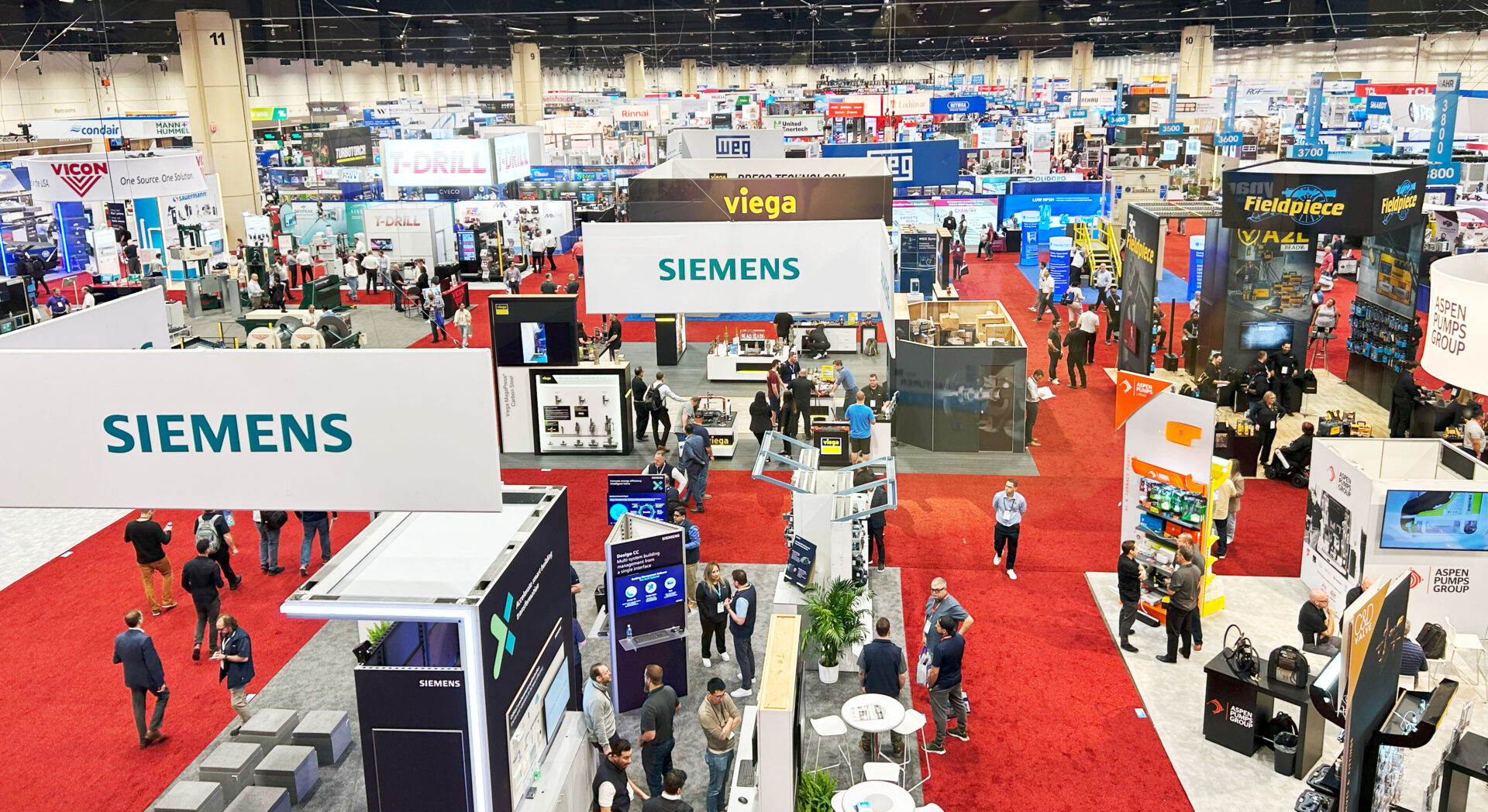
3 Key Takeaways from AHR Expo 2025: What’s Shaping the Future of HVAC
The 2025 AHR Expo brought together HVAC industry leaders, innovators, and professionals to showcase the latest advancements in heating, ventilation, and air conditioning. Here are the key insights that stood out from our team on the ground. 1. Smart Technology is Enhancing, Not Replacing, Traditional HVAC A significant shift observed at this year’s expo is […]
-
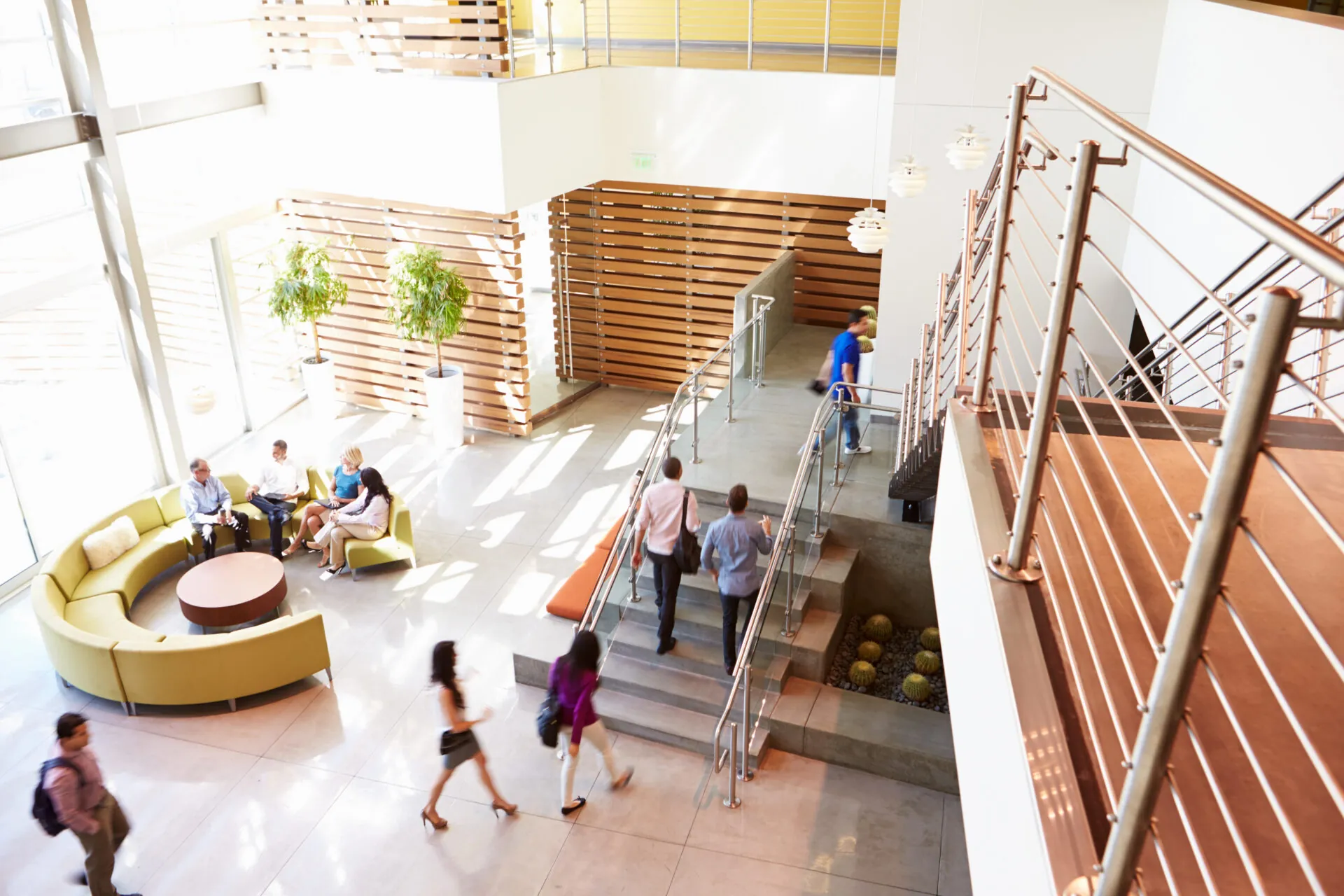
Webinar Recap: Redefining Energy Efficiency
As commercial energy costs continue to rise, building operators are looking for faster, cost-effective solutions to reduce waste and improve efficiency. Heating, Ventilation, and Air Conditioning (HVAC) systems account for nearly 60-70% of total building energy consumption, making them one of the largest opportunities for savings. However, traditional HVAC systems often operate on outdated schedules, […]
-

Wildfire Smoke: Understanding the Impact on Indoor Air Quality
As we face yet another intense wildfire season, with significant events already impacting regions across the country, the challenges to air quality, both outdoors and indoors, are more pressing than ever. Wildfires contribute up to 50% of “ultrafine” particles in the air; tiny pollutants that can travel hundreds of miles and infiltrate indoor spaces, affecting […]
